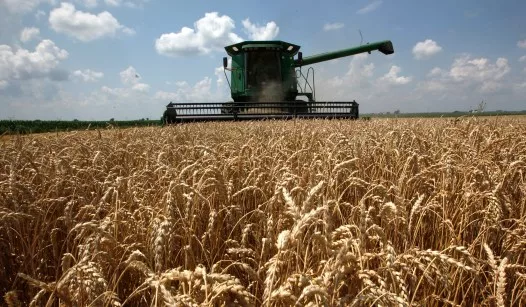As the United States navigates complex global dynamics, one of our most critical national assets—our farmland and food supply—faces increasing risks from foreign influences, particularly from China. Ensuring the security of these vital resources is essential not only for our economy but also for the health and safety of our citizens.
The significance of farmland in America cannot be overstated. It is the backbone of our agricultural industry, providing the food that sustains our population and supporting millions of jobs across the country. However, as international competition intensifies, foreign entities are increasingly eyeing U.S. agricultural assets. This raises alarm bells about the potential for foreign control over our food supply and the implications it could have for national security.
In recent years, there have been numerous instances of foreign investment in U.S. farmland. While investment can be beneficial, it is crucial to scrutinize who is acquiring our agricultural land and for what purpose. Reports indicate that entities from countries like China are purchasing significant tracts of farmland, leading to concerns about food security and the potential for these foreign investors to influence agricultural practices and policies in the United States.
The implications of foreign ownership extend beyond mere economics. Control over our food supply chain can pose risks to food safety, as foreign entities may not adhere to the same standards and regulations that govern U.S. agriculture. Additionally, this foreign influence can lead to the exploitation of our natural resources, jeopardizing the integrity of our ecosystems and the sustainability of our agricultural practices.
Moreover, the research and development sector within agriculture is another area of concern. American universities and research institutions are at the forefront of agricultural innovation, developing new technologies and methods to enhance crop yields and improve food security. However, foreign entities seeking access to this research can pose a threat to our competitive advantage in global agriculture. Intellectual property theft and the transfer of sensitive agricultural technologies to foreign nations can undermine our agricultural industry and hinder our ability to maintain a secure food supply.
To effectively protect our farmland and food supply, a multifaceted approach is necessary. Policymakers must implement stricter regulations regarding foreign investments in agricultural land. This includes establishing clearer guidelines for foreign ownership and ensuring that any investments align with national security interests. Additionally, increasing transparency in transactions involving foreign entities can help mitigate risks and safeguard our agricultural assets.
Furthermore, fostering domestic agricultural resilience is crucial. Supporting local farmers and encouraging sustainable practices can reduce our reliance on foreign entities and enhance our food security. Investing in research and development within the agricultural sector will also ensure that we remain at the forefront of innovation, allowing us to compete effectively on a global scale.
Public awareness and engagement are vital components of this effort. Citizens must be informed about the potential risks associated with foreign ownership of farmland and the implications for our food supply. Grassroots movements and community organizations can play a significant role in advocating for policies that protect our agricultural resources and promote local food systems.
In conclusion, the security of our farmland and food supply is a matter of national importance. As we confront the challenges posed by foreign influences, it is imperative that we take proactive measures to safeguard these essential assets. By implementing robust policies, fostering domestic resilience, and engaging the public, we can protect one of our greatest national treasures and ensure a secure food future for all Americans.
